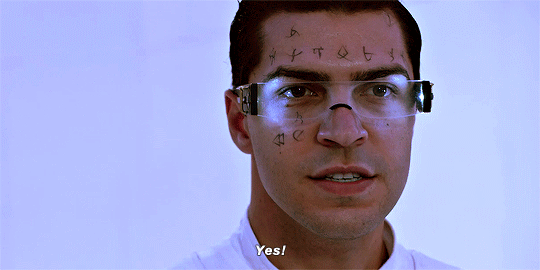20. I love TV shows. Obsessed with The 100. Bellamy Blake is my fictional boyfriend. Nobody can take away all the good and bad that is Bellamy Blake. Raven is the hero I never thought I needed. Clarke is simply extraordinary.
Don't wanna be here? Send us removal request.
Note
I’m still going to Conageddon which I’m so excited about but is it wrong that I’m a little uncomfortable knowing that so many that have “cancelled” Beliza are still going? I just feel whether your a fan, actor, panelist, volunteer etc and have cancelled them and are still going why bother? If you have cancelled the ones who run this convention why are you still going? And even the actors who have unfollowed them and are still going? Like wtf I don’t get it.
First of all, hope you have a good time!!
And no, I don't think it's wrong. I think it's super fake. You "cancelled" them on social media, even participated in harassing them or throwing shade.. and now you gonna attend their convention and act like you didn't participate in the harassment they have had to live through for weeks now? Especially if you are going to WORK for them at the convention and you are one of them that "cancelled" them? No, they should drop out. They have no business working at Bob and Eliza's convention at all.
When it comes to the cast, I've already said what I think. You took a public stance against them and now you are still attending? Who needs enemies with friends like that.... 🙄
14 notes
·
View notes
Text
Thoughts while reading Pride and Prejudice #3
Mr.Darcy: *insults Lizzie's family*
Lizzie:

8K notes
·
View notes
Text
I work in a high pressure legal environment (Canadian Immigration, Family and Criminal law - focusing on helping LGBTQ, ethnic, religious and other minorities) where I have come across many similar claims and allegations. Some completely true and heartbreaking, some embellished - but with roots of truth (the ones that are always hardest to prove/disprove), and some absolutely false. I am also an immigrant bisexual woman of colour and a survivor of an abusive relationship. I only say all of this to give some context so you don’t jump to the conclusion that I “just don’t understand”.
I believe that there is no reason for Arryn to publicly say all that she said without any roots of truth to it. At the same time, we don’t really know these three people involved in this narrative, nor all of their perceived truths. I’m not trying to say that Bob and Eliza didn’t do any wrong or to say that Arryn is making everything up. I was pretty convinced Beliza probably got together in some unsavoury way anyway (like cheating), what with the timelines involved. BUT, just that one possible truth does not prove that ALL the other claims made are completely accurate and that Beliza are imhumane monsters. Even the cheating thing - it’s horrible, but no human is as perfect as we would like for them to be, and this is just not our business.
I know I sound like an apologist for abusers. However, because of my work environment and my personal experiences with others like myself, I knowwwww that not everything that people claim to be true in cases like these are always true. You can admire Arryn’s courage to speak up. It seems like she has suffered quite a lot in the last few years just by her partner having been associated with fandom culture anyway. BUT you don’t actually know her or the complete truth of her relationship with Bob. So, none of you should be sending hate toward Bob and Eliza right now. This immediate cancel culture is so very toxic. I only say this because if Bob had released a similar statement a day ago, just based on his past of speaking about mental health issues etc., you would all be cancelling Arryn today without a moment of thought. Everyone’s speed to jump at “cancelling” people these days is just so unsettling.
I have had so many cases at work where people have actually admitted (after thorough investigations into events) that they have taken root facts of their story and built upon them to make their claims stronger for a higher level of empathy. I have seen both men and women do this. I have seen both men and women be accused of things that didn’t happen the way that the accuser said they did, because context matters. Sometimes certain acts that occur as defence because of how you’ve been treated can be isolated and shown as something it was not. At the end of the day, we actually don’t know. After all, “we are all the heroes of our own stories.”
So please, I urge all of you to keep your opinions / discussions of this matter within your fandom circle if you feel that you must address it (as I have chosen to). Don’t send death threats or any type of messages to any of these three people. Leave all three of them alone. We don’t know them. “Picking sides” without knowing, especially as fast as people tend to do these days because of the current toxic cancel culture, is just wrong. You have the power to destroy lives with your anonymous words on a social media platform. Don’t destroy the lives of any of these people that YOU. DO. NOT. KNOW. Leave all of them alone.
If there is justice to be served for any of these proper, it hopefully will be. But your comments that are sent directly to these people don’t actually serve any type of real justice.
Leave Arryn alone (shame on the people that ever harassed her about Bob and still continue to do so, more than a year after the relationship ended). Leave Bob and Eliza alone (shame on the people that ever harassed them about their relationship or are now suddenly “cancelling” them by sending them hate, without knowing)
398 notes
·
View notes
Text
Few thoughts no one asked for.
As everyone else has said, but I’ll reiterate, breathe. As much as these are people we admire and have looked up to, we don’t know them and they are not our family.
Alyssa Milano, who was one of the kickstarters of the Me Too movement said it best. “Believe women” has never meant “believe all women no matter what” and that until some men have had their due process it’s best to remain silent, and that’s what I’ll be doing. Bob is not cancelled. Arryn is not cancelled. Eliza is not cancelled. At least, not to me.
You can acknowledge that it was evident that Bob and Arryn had a toxic relationship for a while now, and that his quickly jumping into a marriage with Eliza was suspect. However, you can also acknowledge that a lot of Arryn’s points and statements don’t match up and don’t align with reality, and that’s just from an outside perspective. (She spoke about why Bob “requested time off” as if she knew intimate details, although that happened long after they had broken up).
I think they are two people who had a disgusting break up and it’s not my place to comment and cancel anyone.
512 notes
·
View notes
Text
The only reasonable birdapp post in the last few days

293 notes
·
View notes
Text
I’m really confused. I thought that Bellamy was only supposed to be gone from 7x01-7x04? Did Bob ask for more time off then that? Why is he second credited when he’s technically just a guest star now? Why is Clarke barely in these episodes? Why does Echo have more screentime then the two leads combined? Why is Octavia giving a shit about Echo?
What is happening?
138 notes
·
View notes
Note
So I had already come to terms with the fact that Bellarke isn’t going to happen, that Bellamy doesn’t make it to the end. But this? This is just cruel and I hate it here. Echo’s behavior has already had me resenting Bellamy for loving her (and Bell is one of my favorite characters ever!!) but this just made me sick. Good on Bob for saying peace out and acting like this dumpster fire of a show doesn’t exist anymore. I hate Jason and I hope his shitty prequel flops 😌
We all said we didn't see their development so Jason said here, have a flashback. We all said at least we never had to see Bellamy make a move on her, Jason said here lets watch it happen. We all said at least we never had to watch their first kiss, Jason said here's their first kiss. We said at least we never had to watch shaven Bellamy with Echo, Jason said Bob shave your beard and come back after your break, you have B/E scenes to film now.
Lol, we do keep losing at every turn. 🤷♀️
3 notes
·
View notes
Photo









LNC: Bellamy Blake (insp.)
2K notes
·
View notes
Text
john “fuck i guess i’ll be the hero because no one else is doing it” murphy is my favorite murphy
104 notes
·
View notes
Photo






7x02 // 7x05
3K notes
·
View notes
Note
E/cho stans are trying to defend Echo’s actions last night by saying that Bellamy did the same thing last season when he wanted to burn down Sanctum for C’s death, and people cheered for him. But...he didn’t do it. That’s the difference. They like the emotion of that moment, but are happy he DIDN’T actually do it. Just like C could’ve killed Russel for revenge, but though she DID whoop his ass, she ultimately DIDN’T kill him. That’s the point. They. Didn’t. Do. It. They’re *doing better.*
That’s correct. He didn’t do it.
And it was hard to control himself and also hard for Clarke to control herself and not kill Russell when she burnt the castle.. or let the castle burn because she didn’t do that on purpose.
Do they ignore the similarity to Finn? Or do they think Finn’s massacre was also something to be cheered for? Or do they think Finn’s massacre was bad but Echo’s brutal murder was okay because it wasn’t the same thing?
But also, when Bellamy attacked Russell... Russell was the actual murderer, not just the messenger running the tech where she found out B “died.”
I think the best way to analyze our faves is to ask ourselves how we would feel about their actions if they were made by a character we hated. Or compare our fave’s actions to the actions of our least faves and see how it looks. Where are the similarities? Where are the differences? And be honest with ourselves. Is that REALLY what happened or am I tweaking it to make it sound better/worse?
35 notes
·
View notes
Photo




“For once in your life, trust someone else”
283 notes
·
View notes
Text
Pride and Prejudice, and Consent
Time to cleanse the palate with a bit of positive relationship analysis!
One of the tropes that plagues, and has plagued, romance fiction ever since the invention of the novel is the idea of female consent not being necessary as long as the male is desirable and/or really wants her. Often, the heroine will succumb either to her own desires or his, whether she is entirely willing to do so or not, and that is framed as being analogous with passion—even love.
Well, two hundred years before Fifty Shades of Grey played fast and loose with consent issues, I present to you the antithesis of this trope in Mr. Darcy of Pemberley.
Elizabeth Bennet, the heroine of Pride and Prejudice, receives two proposals of marriage that are eerily similar, despite the outward differences of her two suitors. Mr. Collins and Mr. Darcy both spring unexpected and unwelcome proposals of marriage on her, calling to light her family’s lack of financial security and connection, seeing themselves as condescending to offer for her, and being completely perplexed by her refusal to accept them.
Elizabeth to Collins: You could not make me happy, and I am convinced I am the last woman in the world who would make you so.
Elizabeth to Darcy: I had not known you a month before I felt that you were the last man in the world whom I could ever be prevailed on to marry.“
Elizabeth’s words leave no ambiguity for either gentleman: she soundly rejects them both in a similar fashion. From this, readers may infer that since Darcy and Elizabeth end up together, it is Darcy who is persistent in his romantic intentions after Elizabeth has said “no.” But in fact, it is Collins who refuses to take no for an answer, and Darcy who never oversteps his bounds.
The first thing Collins says after he hears her rejection is that she cannot be serious in her refusal.
"I am not now to learn,” replied Mr. Collins, with a formal wave of the hand, “that it is usual with young ladies to reject the addresses of the man whom they secretly mean to accept, when he first applies for their favour; and that sometimes the refusal is repeated a second or even a third time. I am therefore by no means discouraged by what you have just said, and shall hope to lead you to the altar ere long.”
So elevated is his own sense of self-worth that she has to explain to him that she did, in fact, mean what she said:
“Upon my word, sir,” cried Elizabeth, “your hope is rather an extraordinary one after my declaration. I do assure you that I am not one of those young ladies (if such young ladies there are) who are so daring as to risk their happiness on the chance of being asked a second time. I am perfectly serious in my refusal.”
What is the result? Collins still doesn’t take no for an answer, again:
“Were it certain that Lady Catherine would think so,” said Mr. Collins very gravely – “but I cannot imagine that her ladyship would at all disapprove of you. And you may be certain that when I have the honour of seeing her again, I shall speak in the highest terms of your modesty, economy, and other amiable qualifications.”
“Indeed, Mr. Collins, all praise of me will be unnecessary. You must give me leave to judge for myself, and pay me the compliment of believing what I say.”
And again:
“When I do myself the honour of speaking to you next on this subject, I shall hope to receive a more favourable answer than you have now given me; though I am far from accusing you of cruelty at present, because I know it to be the established custom of your sex to reject a man on the first application, and perhaps you have even now said as much to encourage my suit as would be consistent with the true delicacy of the female character.”
“Really, Mr. Collins,” cried Elizabeth with some warmth, “you puzzle me exceedingly. If what I have hitherto said can appear to you in the form of encouragement, I know not how to express my refusal in such a way as may convince you of its being one.”
And again:
"You must give me leave to flatter myself, my dear cousin, that your refusal of my addresses is merely words of course. My reasons for believing it are briefly these: – It does not appear to me that my hand is unworthy your acceptance, or that the establishment I can offer would be any other than highly desirable. My situation in life, my connections with the family of De Bourgh, and my relationship to your own, are circumstances highly in my favour; and you should take it into farther consideration that, in spite of your manifold attractions, it is by no means certain that another offer of marriage may ever be made you. Your portion is unhappily so small, that it will in all likelihood undo the effects of your loveliness and amiable qualifications. As I must therefore conclude that you are not serious in your rejection of me, I shall chuse to attribute it to your wish of increasing my love by suspense, according to the usual practice of elegant females.“
”I do assure you, sir, that I have no pretension whatever to that kind of elegance which consists in tormenting a respectable man. I would rather be paid the compliment of being believed sincere. I thank you again and again for the honour you have done me in your proposals, but to accept them is absolutely impossible. My feelings in every respect forbid it. Can I speak plainer? Do not consider me now as an elegant female, intending to plague you, but as a rational creature, speaking the truth from her heart.“
And again:
“You are uniformly charming!” cried he, with an air of awkward gallantry; “and I am persuaded that, when sanctioned by the express authority of both your excellent parents, my proposals will not fail of being acceptable.”
In fact, Collins only stops pursuing Elizabeth when her father puts his foot down and backs her refusal. Pride and Prejudice is a comedy, and so the tone is light on the surface, but beneath the satire is a very real, earnest desire to communicate how often women’s words—even their consent—are dismissed as fickle or inconsequential. Seeing our heroine not fleeing dramatically from a villain, but pursued by an entitled man who doesn’t take her words seriously, we feel Elizabeth’s sense of outrage and how belittling it is for Collins to act this way.
By contrast, though we might imagine a love interest like Darcy to be overcome with passion and try to make her his own by any means, Darcy is remarkably restrained and respectful without ever losing his ardent love for the woman he wants to marry. The first divergence of his response from Collins’ occurs right after he has been rejected:
"And this is all the reply which I am to have the honour of expecting! I might, perhaps, wish to be informed why, with so little endeavour at civility, I am thus rejected. But it is of small importance.“
The wording here is important. He doesn’t demand that she explain why she rejected him, but rather why she was so impolite about doing so (since he has no knowledge of her dislike of him). He continues to be honest about his objections to her family’s behavior and place in the world, and to be angry at her for defending the duplicitous Wickham, but he never tries to convince her that she was wrong in rejecting him, even though he still views her as a social inferior.
After their heated conversation, Darcy leaves with an apology that he has occupied her for so long:
"You have said quite enough, madam. I perfectly comprehend your feelings, and have now only to be ashamed of what my own have been. Forgive me for having taken up so much of your time, and accept my best wishes for your health and happiness.”
This is a far cry from Collins following Elizabeth around after the proposal and trying to go over her head to her parents for support.
But wait—doesn’t the love interest write Elizabeth a letter, convincing her to give him another chance?
No. Both Darcy’s letter and its method of delivery are respectful of Elizabeth’s boundaries and her refusal of him.
It should be noted that an unmarried gentlewoman receiving letters from a man she was not engaged to resulted in scandal if it were ever exposed. If Darcy had wanted to compel Elizabeth to marry him, he would only have had to deliver the letter publicly, or through the post. Instead, he delivers the letter in person, when they are alone in a park and there is no chance of discovery. It is still a bit of a risk, though, and so he asks (not demands) that she read it:
“Will you do me the honour of reading that letter?“
Right from the beginning, Darcy reassures Elizabeth that he is not trying to impose on her or get her to accept him after she has made her wishes clear:
"Be not alarmed, madam, on receiving this letter, by the apprehension of its containing any repetition of those sentiments or renewal of those offers which were last night so disgusting to you.
While it is more than apparent that her rejection stung and he is still in love with her, he never brings up the subject of the proposal again—the contents are a defense of the charges she had laid against his character, as well as a warning against Wickham for her own safety. He doesn’t ask for a second chance or demand she reconsider her words, even in light of this new information. Moreover, he trusts her with the knowledge of his sister’s near-elopement with Wickham (which could cause a scandal if discovered), thus risking as much by delivering the letter as Elizabeth does by accepting it. In every way, he trusts her judgment and keeps her wishes in mind.
When they meet again at Pemberley, Darcy is trying to reform his behavior. He is cordial to her tradesman uncle and aunt, and has divested himself of the haughtiness that prevented her from seeing his true worth initially. Darcy does not give himself permission to pursue Elizabeth as a result of this change in character; it is only after they have met and talked cordially that he asks her, not to speak with him alone, but to meet his sister. In fact, he resists making romantic overtures for the duration of the visit, which ends abruptly when Elizabeth discovers her sister’s elopement with Wickham. And even there, when she and Darcy are accidentally alone during her distress, he makes no move to use the occasion as an excuse to “comfort” her with his advances. His reaction is, in fact, quite the opposite:
"I am afraid you have been long desiring my absence, nor have I anything to plead in excuse of my stay, but real, though unavailing, concern.”
Another opportunity arises for Darcy to compel Elizabeth to marry him, this time out of gratitude. Unable to see Elizabeth so wretched, he finds Lydia and Wickham in London and, at great expense, convinces them to marry. He saves not only her sister’s reputation but that of her entire family. Yet rather than use that as an example to Elizabeth of what a good person he is, he forbids her aunt and uncle from mentioning that it was he who saved the Bennets’ good name. Elizabeth doesn’t even know he was involved until Lydia thoughtlessly gives the game away (after she, too, was sworn to secrecy).
How then, do Lizzy and Darcy get together? It is Elizabeth herself who gives Darcy a reason to believe her opinion of him has improved. During a verbal duel with Darcy’s formidable aunt, she comes out the winner and point-blank refuses to give Lady Catherine a promise not to pursue Mr. Darcy. Lady Catherine petulantly tries to cut the problem off at the source by relating everything to her nephew. It works about as well as you’d expect.
But, unluckily for her ladyship, its effect had been exactly contrariwise.
"It taught me to hope,“ said he, “as I had scarcely ever allowed myself to hope before. I knew enough of your disposition to be certain, that had you been absolutely, irrevocably decided against me, you would have acknowledged it to Lady Catherine, frankly and openly.”
What prompts Darcy to renew his offer of marriage is nothing more or less than evidence that Elizabeth had seen his change of heart and accepted it.
“You are too generous to trifle with me. If your feelings are still what they were last April, tell me so at once.My affections and wishes are unchanged; but one word from you will silence me on this subject for ever.”
Above is Darcy’s second proposal. After hearing her first rejection, he takes her at her word, respectfully gives her information that might have led her to mistaken conclusions about him, leaves even before he is asked to, reforms his own behavior, never takes advantage of their being alone to make unwanted advances, assists her and her family without taking any credit, and once he has seen enough signs to think she might accept him, renews his offer once and only once. If she says no again, unlike Collins, he will not continue to pester her or seek her out. He will not try to convince her that her decision was wrong. It is a sad statement on society that this is a remarkable thing, no less in the real world than in fiction, and all too prevalent in heroes of romance even two hundred years later. There is no shortage of love interests who mistake passion for permission, conflict for consent, and adversity for flirtation—but there is also no excuse for this to continue, particularly now. If a novel published in 1813 can understand the letter and spirit of consent, I think we can do better in our own time.
25K notes
·
View notes
Text
Pride and Prejudice, and Consent
Time to cleanse the palate with a bit of positive relationship analysis!
One of the tropes that plagues, and has plagued, romance fiction ever since the invention of the novel is the idea of female consent not being necessary as long as the male is desirable and/or really wants her. Often, the heroine will succumb either to her own desires or his, whether she is entirely willing to do so or not, and that is framed as being analogous with passion—even love.
Well, two hundred years before Fifty Shades of Grey played fast and loose with consent issues, I present to you the antithesis of this trope in Mr. Darcy of Pemberley.
Elizabeth Bennet, the heroine of Pride and Prejudice, receives two proposals of marriage that are eerily similar, despite the outward differences of her two suitors. Mr. Collins and Mr. Darcy both spring unexpected and unwelcome proposals of marriage on her, calling to light her family’s lack of financial security and connection, seeing themselves as condescending to offer for her, and being completely perplexed by her refusal to accept them.
Elizabeth to Collins: You could not make me happy, and I am convinced I am the last woman in the world who would make you so.
Elizabeth to Darcy: I had not known you a month before I felt that you were the last man in the world whom I could ever be prevailed on to marry.“
Elizabeth’s words leave no ambiguity for either gentleman: she soundly rejects them both in a similar fashion. From this, readers may infer that since Darcy and Elizabeth end up together, it is Darcy who is persistent in his romantic intentions after Elizabeth has said “no.” But in fact, it is Collins who refuses to take no for an answer, and Darcy who never oversteps his bounds.
The first thing Collins says after he hears her rejection is that she cannot be serious in her refusal.
"I am not now to learn,” replied Mr. Collins, with a formal wave of the hand, “that it is usual with young ladies to reject the addresses of the man whom they secretly mean to accept, when he first applies for their favour; and that sometimes the refusal is repeated a second or even a third time. I am therefore by no means discouraged by what you have just said, and shall hope to lead you to the altar ere long.”
So elevated is his own sense of self-worth that she has to explain to him that she did, in fact, mean what she said:
“Upon my word, sir,” cried Elizabeth, “your hope is rather an extraordinary one after my declaration. I do assure you that I am not one of those young ladies (if such young ladies there are) who are so daring as to risk their happiness on the chance of being asked a second time. I am perfectly serious in my refusal.”
What is the result? Collins still doesn’t take no for an answer, again:
“Were it certain that Lady Catherine would think so,” said Mr. Collins very gravely – “but I cannot imagine that her ladyship would at all disapprove of you. And you may be certain that when I have the honour of seeing her again, I shall speak in the highest terms of your modesty, economy, and other amiable qualifications.”
“Indeed, Mr. Collins, all praise of me will be unnecessary. You must give me leave to judge for myself, and pay me the compliment of believing what I say.”
And again:
“When I do myself the honour of speaking to you next on this subject, I shall hope to receive a more favourable answer than you have now given me; though I am far from accusing you of cruelty at present, because I know it to be the established custom of your sex to reject a man on the first application, and perhaps you have even now said as much to encourage my suit as would be consistent with the true delicacy of the female character.”
“Really, Mr. Collins,” cried Elizabeth with some warmth, “you puzzle me exceedingly. If what I have hitherto said can appear to you in the form of encouragement, I know not how to express my refusal in such a way as may convince you of its being one.”
And again:
"You must give me leave to flatter myself, my dear cousin, that your refusal of my addresses is merely words of course. My reasons for believing it are briefly these: – It does not appear to me that my hand is unworthy your acceptance, or that the establishment I can offer would be any other than highly desirable. My situation in life, my connections with the family of De Bourgh, and my relationship to your own, are circumstances highly in my favour; and you should take it into farther consideration that, in spite of your manifold attractions, it is by no means certain that another offer of marriage may ever be made you. Your portion is unhappily so small, that it will in all likelihood undo the effects of your loveliness and amiable qualifications. As I must therefore conclude that you are not serious in your rejection of me, I shall chuse to attribute it to your wish of increasing my love by suspense, according to the usual practice of elegant females.“
”I do assure you, sir, that I have no pretension whatever to that kind of elegance which consists in tormenting a respectable man. I would rather be paid the compliment of being believed sincere. I thank you again and again for the honour you have done me in your proposals, but to accept them is absolutely impossible. My feelings in every respect forbid it. Can I speak plainer? Do not consider me now as an elegant female, intending to plague you, but as a rational creature, speaking the truth from her heart.“
And again:
“You are uniformly charming!” cried he, with an air of awkward gallantry; “and I am persuaded that, when sanctioned by the express authority of both your excellent parents, my proposals will not fail of being acceptable.”
In fact, Collins only stops pursuing Elizabeth when her father puts his foot down and backs her refusal. Pride and Prejudice is a comedy, and so the tone is light on the surface, but beneath the satire is a very real, earnest desire to communicate how often women’s words—even their consent—are dismissed as fickle or inconsequential. Seeing our heroine not fleeing dramatically from a villain, but pursued by an entitled man who doesn’t take her words seriously, we feel Elizabeth’s sense of outrage and how belittling it is for Collins to act this way.
By contrast, though we might imagine a love interest like Darcy to be overcome with passion and try to make her his own by any means, Darcy is remarkably restrained and respectful without ever losing his ardent love for the woman he wants to marry. The first divergence of his response from Collins’ occurs right after he has been rejected:
"And this is all the reply which I am to have the honour of expecting! I might, perhaps, wish to be informed why, with so little endeavour at civility, I am thus rejected. But it is of small importance.“
The wording here is important. He doesn’t demand that she explain why she rejected him, but rather why she was so impolite about doing so (since he has no knowledge of her dislike of him). He continues to be honest about his objections to her family’s behavior and place in the world, and to be angry at her for defending the duplicitous Wickham, but he never tries to convince her that she was wrong in rejecting him, even though he still views her as a social inferior.
After their heated conversation, Darcy leaves with an apology that he has occupied her for so long:
"You have said quite enough, madam. I perfectly comprehend your feelings, and have now only to be ashamed of what my own have been. Forgive me for having taken up so much of your time, and accept my best wishes for your health and happiness.”
This is a far cry from Collins following Elizabeth around after the proposal and trying to go over her head to her parents for support.
But wait—doesn’t the love interest write Elizabeth a letter, convincing her to give him another chance?
No. Both Darcy’s letter and its method of delivery are respectful of Elizabeth’s boundaries and her refusal of him.
It should be noted that an unmarried gentlewoman receiving letters from a man she was not engaged to resulted in scandal if it were ever exposed. If Darcy had wanted to compel Elizabeth to marry him, he would only have had to deliver the letter publicly, or through the post. Instead, he delivers the letter in person, when they are alone in a park and there is no chance of discovery. It is still a bit of a risk, though, and so he asks (not demands) that she read it:
“Will you do me the honour of reading that letter?“
Right from the beginning, Darcy reassures Elizabeth that he is not trying to impose on her or get her to accept him after she has made her wishes clear:
"Be not alarmed, madam, on receiving this letter, by the apprehension of its containing any repetition of those sentiments or renewal of those offers which were last night so disgusting to you.
While it is more than apparent that her rejection stung and he is still in love with her, he never brings up the subject of the proposal again—the contents are a defense of the charges she had laid against his character, as well as a warning against Wickham for her own safety. He doesn’t ask for a second chance or demand she reconsider her words, even in light of this new information. Moreover, he trusts her with the knowledge of his sister’s near-elopement with Wickham (which could cause a scandal if discovered), thus risking as much by delivering the letter as Elizabeth does by accepting it. In every way, he trusts her judgment and keeps her wishes in mind.
When they meet again at Pemberley, Darcy is trying to reform his behavior. He is cordial to her tradesman uncle and aunt, and has divested himself of the haughtiness that prevented her from seeing his true worth initially. Darcy does not give himself permission to pursue Elizabeth as a result of this change in character; it is only after they have met and talked cordially that he asks her, not to speak with him alone, but to meet his sister. In fact, he resists making romantic overtures for the duration of the visit, which ends abruptly when Elizabeth discovers her sister’s elopement with Wickham. And even there, when she and Darcy are accidentally alone during her distress, he makes no move to use the occasion as an excuse to “comfort” her with his advances. His reaction is, in fact, quite the opposite:
"I am afraid you have been long desiring my absence, nor have I anything to plead in excuse of my stay, but real, though unavailing, concern.”
Another opportunity arises for Darcy to compel Elizabeth to marry him, this time out of gratitude. Unable to see Elizabeth so wretched, he finds Lydia and Wickham in London and, at great expense, convinces them to marry. He saves not only her sister’s reputation but that of her entire family. Yet rather than use that as an example to Elizabeth of what a good person he is, he forbids her aunt and uncle from mentioning that it was he who saved the Bennets’ good name. Elizabeth doesn’t even know he was involved until Lydia thoughtlessly gives the game away (after she, too, was sworn to secrecy).
How then, do Lizzy and Darcy get together? It is Elizabeth herself who gives Darcy a reason to believe her opinion of him has improved. During a verbal duel with Darcy’s formidable aunt, she comes out the winner and point-blank refuses to give Lady Catherine a promise not to pursue Mr. Darcy. Lady Catherine petulantly tries to cut the problem off at the source by relating everything to her nephew. It works about as well as you’d expect.
But, unluckily for her ladyship, its effect had been exactly contrariwise.
"It taught me to hope,“ said he, “as I had scarcely ever allowed myself to hope before. I knew enough of your disposition to be certain, that had you been absolutely, irrevocably decided against me, you would have acknowledged it to Lady Catherine, frankly and openly.”
What prompts Darcy to renew his offer of marriage is nothing more or less than evidence that Elizabeth had seen his change of heart and accepted it.
“You are too generous to trifle with me. If your feelings are still what they were last April, tell me so at once.My affections and wishes are unchanged; but one word from you will silence me on this subject for ever.”
Above is Darcy’s second proposal. After hearing her first rejection, he takes her at her word, respectfully gives her information that might have led her to mistaken conclusions about him, leaves even before he is asked to, reforms his own behavior, never takes advantage of their being alone to make unwanted advances, assists her and her family without taking any credit, and once he has seen enough signs to think she might accept him, renews his offer once and only once. If she says no again, unlike Collins, he will not continue to pester her or seek her out. He will not try to convince her that her decision was wrong. It is a sad statement on society that this is a remarkable thing, no less in the real world than in fiction, and all too prevalent in heroes of romance even two hundred years later. There is no shortage of love interests who mistake passion for permission, conflict for consent, and adversity for flirtation—but there is also no excuse for this to continue, particularly now. If a novel published in 1813 can understand the letter and spirit of consent, I think we can do better in our own time.
25K notes
·
View notes
Text








Josephine Prime being irritated with delinquent!bellarke and their 'we've survived far worse than this' lack of concern.
362 notes
·
View notes










